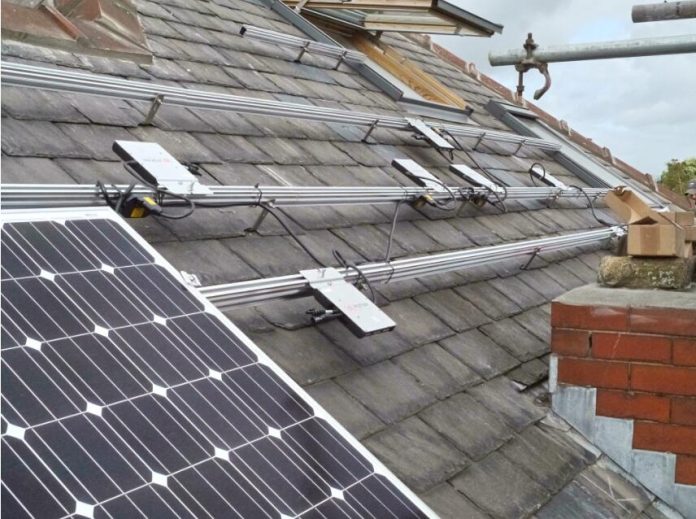Microinverter supplier Enphase Energy has posted strong Q4 2021 results that saw strong revenue growth following high demand for its IQ microinverters and a 53% jump in orders of its IQ batteries, compared with Q3 2021, despite supply chain constraints. In response to the surge in demand for batteries, it has added extra capacity to its facilities in Mexico and India.
Alongside the revenue growth came a significant ramp up of investment in research and development (R&D) and sales and marketing from last year. The company also made a number of key acquisitions in Q4 last year as it seeks to move into the electric vehicle (EV) and predictive software space.
Enphase recorded US$412.7 million in revenue for the three months ending 31 December 2021, up from US$351.5 million in Q3 2021, according to its Q4 2021 financial results released yesterday (8 February). This was a 17% jump on the record revenue posted in Q3 2021.
It said strong demand for its IQ microinverters and IQ Batteries in the US and international markets drove the increased revenue despite “supply chain constraints and logistical challenges”.
Enphase shipped roughly 3,033,891 microinverters totalling 1,082MWdc and 100MWh of Enphase IQ Batteries. In Q3, it shipped 2.6 million microinverters, equivalent to around 913MWdc, and 65MWh of storage systems.
Speaking to analysts about the results, Enphase CEO Badri Kothandaraman said: “Our operations team did a great job flexing manufacturing as 2021 played out” and that the company’s “situation has been stable primarily due to diligent supplier management and qualification of alternate suppliers during the past year”.
In a response to the higher demand, Enphase had added a fully automated line in Mexico with a capacity of 2.25 million microinverters and a second fully automated line with a capacity of 1.5 million microinverters in India via its contract manufacturer Salcomp. In combination with its Chinese capacity, this brings its total quarterly manufacturing capacity to 5 million microinverters worldwide.
Meanwhile, the company has 180MWh of storage capacity today, up from 120MWh in Q3, and is in discussions with additional storage suppliers to increase capacity further, it said.
“Our lead times for batteries are still long today at approximately 14 to 16 weeks primarily due to logistics challenges, which are global,” said Kothandaraman. “The lead times should come down once global shipping and port conditions improve.”
Enphase expects to ship between 110-120MWh of batteries in Q1 this year, said Kothandaraman, up 15% from Q4 last year. Expect prices for Enphase’s battery storage products to go up in March this year, Kothandaraman told analysts.
Eyeing future development opportunities, Enphase more than doubled it expenditure on R&D in Q4 compared with the same period in 2020, with the company investing US$31.6 million into research, up from US$15.8 million. It also more than tripled its sales and marketing investments from Q4 2020 and it now stands at US$44.5 million, up from US$14.1 million.
On top of this, Enphase made two key acquisitions in Q4. In November 2021, it entered the EV charging sector with the acquisition of charging station manufacturer ClipperCreek. And, also in Q4, it acquired predictive software platform company 365 Pronto.
While its net income was down 28% from Q4 2020 to US$52.6 million, it was up more than double on the previous quarter, where it was US$21.8 million. Its full-year revenue reached US$1.38 billion during 2021, up from US$774.4 million in 2020, and it generated a record US$352 million in cash flow from operations during 2021.
Enphase’s shares rose by more than 16% during trading on Tuesday following the Q4 results.
Analyst commentary was sourced from Motley Fool.
Enphase Energy continues strong revenue growth despite supply constraints, adds new battery storage capacity following high demand
Enphase said it started production shipments of its IQ8 microinverters for customers in North America in Q4.
Source:PVTECH






